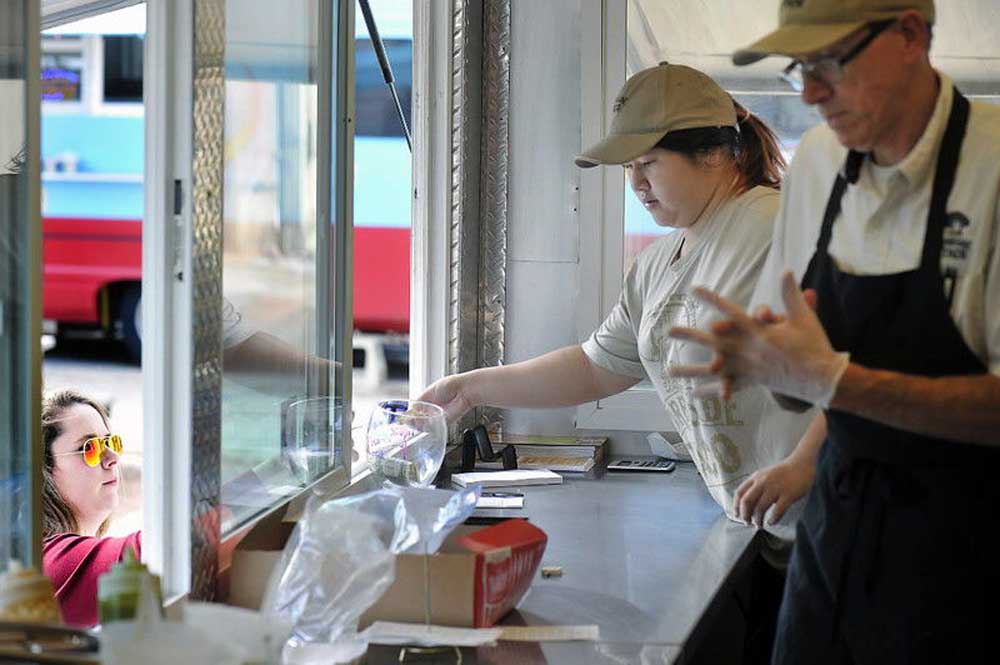Tyler food truck ordinances changing with developer and market input
Published 6:08 pm Monday, August 15, 2016

- Aza Kruse, center, helps a customer while her father Chester Kruse, owner of the Curbside Tacos food truck, gloves up to fill an order Tuesday, Dec. 22, 2015, at the Charcoal Alley food truck park in downtown Jacksonville. Andrew D. Brosig/Tyler Morning Telegraph
Tyler is working to tweak its food truck ordinance to make it friendlier to early mobile food entrepreneurs.
Next week, the Tyler City Council will consider making changes to the city’s unified development code, which essentially is the rulebook for development activity, including regulation related to zoning, permitting and subdivisions.
The measures have already been approved by the Tyler Planning and Zoning Commission.
Two of the changes relate to food trucks and food truck parks.
The first would allow food operators to be in a single place for up to six hours before being required to move. The current regulation requires food trucks to move at least 50 feet after three hours. The rule was originally intended to encourage competition in the Tyler market, but city officials said local operators felt the rule was too restrictive.
Allowing a truck to stay put for six hours would allow them to serve two meals – breakfast and lunch, or lunch and dinner. It also would allow them to garner enough sales to make for a productive day, Planning Manager Kyle Kingma said.
“We feel providing the extra three hours would help out the industry a little more,” Kingma said. “It’s still a reasonable amount of time for them to serve two meals and still allow for the circulation of trucks.”
The second change lifts a requirement that a major food truck park provide a water connection to each food truck slip at its parks. Kingma said the trucks are required by state law to go back to their commissary daily for cleaning and for major food prep. During that time, they would fill up on water and drain their wastewater supply.
The decision was two-fold. Having the water onsite might discourage trucks from going back to their commissary to get fresh water, and the cost of putting in the lines is expensive on the developer, especially if the trucks don’t use the water.
Plus, trucks generally have a wastewater tank that is comparable to the water tank, so the vehicle would not likely take on more water, because there’s no extra space to hold the dirtied water.
“We want to provide flexibility, especially as we get off the ground,” Kingma said. “We don’t over regulate it. We have given developers and the food truck park operators the ability to operate without heavy and unreasonable regulations. We want to get (the industry) going.”
In December 2014, the city approved two sets of ordinances that outline a pilot program for food trucks in the city. One is for food trucks in city right of ways and the other for food truck parks, which is essentially an outdoor food court.
For an operator to participate in the city’s program, they must first be approved to prepare food through the Northeast Texas Public Health District.
Twitter: @TMTFaith






